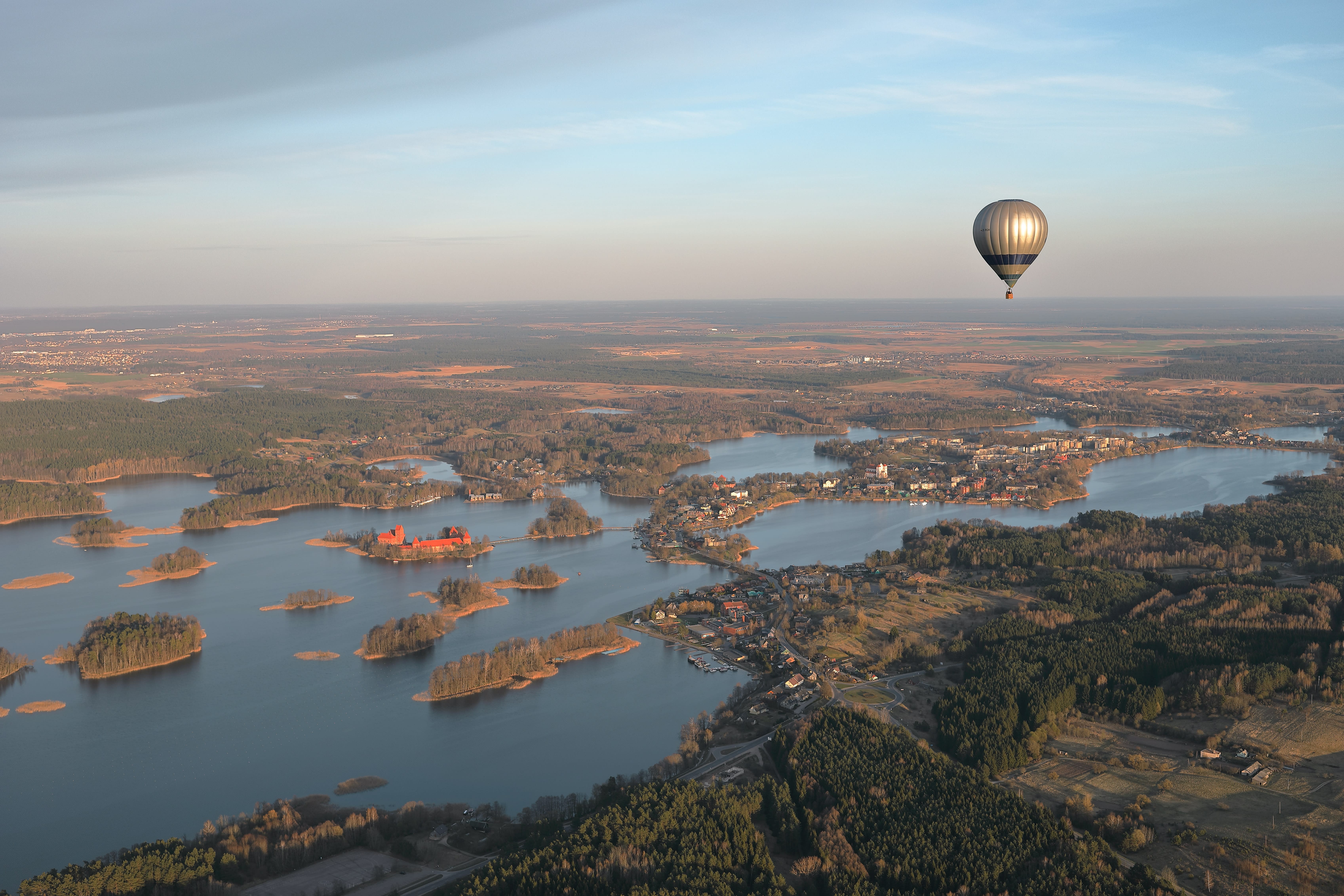Lithuania
Overview and productions
Lithuania is reaping the rewards of a competitive tax credit, while capital Vilnius draws international filmmakers. The country — situated in northern Europe along the southeast shore of the Baltic Sea — hosted 13 foreign projects in 2022, with no less than seven landing from Scandinavian territories, two each from Sweden and Finland and three from Norway, along with two UK co-productions and two from Germany.
German sci-fi project Paradise, a near-future thriller for Netflix produced by Neuesuper’s Simon Amberger, Korbinian Dufter and Rafael Parente and directed by Boris Kunz, shot in Vilnius. Ahil Films was the local partner with support from Vilnius Film Office.
“[Vilnius] is a production-friendly city and it always goes smoothly,” says the film’s line producer Stephan Barth. “Our thriller is a futuristic story and we are happy with what Vilnius offers.”
The city and its surroundings also hosted dystopian sci-fi thriller Vesper, directed in 2022 by Kristina Buozyte and Bruno Samper, using what Vilnius Film Office describes as “enchanting forests, hypnotic swamps and winding rivers”.
Swedish high-end TV show Ronja Rovardotter, based on Astrid Lindgren’s book of the same name, also landed in Lithuania, detailing the adventures of a girl born into a band of robbers in a medieval Scandinavian fortress.
According to the Lithuanian Film Centre, international projects spent a total of $37.1m (€35.3m) in the country in 2022, compared with $39.8m (€37.9m) in 2021, $3.1m (€2.96m) in 2020, and $15.7m (€14.98m) in 2019. In 2022, film producers, benefitting from corporate tax exemption, raised more than $18.7m (€17.8m) in non-refundable funds from Lithuanian companies, up 18% from 2021 levels. The tax credit is available to businesses operating in Lithuania by providing a film producer with a free loan to reduce their taxable income and corporate income tax.
But while the capital is the key focal point for many productions that come to Lithuania, its multi-faceted history offers gothic, renaissance, baroque and neoclassical architecture, alongside a highly skilled film industry workforce. Vilnius Film Office works closely with filmmakers, helping to organise shoots in public spaces and institutions and issuing permits quickly. Elsewhere, the country has an appealing variety of landscapes, from national parks with vast oak and pine forests, to fresh and saltwater rivers and lakes and sand dunes.
A plan is being finalised to create an ‘industry city’ just outside Vilnius city centre, comprising a virtual production studio, post-production labs and VFX desks, alongside virtual reality, extended reality and metaverse creation spaces. It is spearheaded by the Baltic Film and Creative Tech Cluster (BFCTC), a private association of 50 core and 70 associate member companies. “Our main focus is to develop a state-of-the-art working infrastructure and desirable educational programmes to attract young people to meet the future demands of the global industry,” says BFCTC chief executive officer Romanas Matulis.
First person to contact: Jurate Pazikaite, film commissioner, Vilnius Film Office: film@vilnius.lt

Infrastructure and crews
Vilnius Film Cluster is the main production facility with a base for nearly two-dozen audiovisual companies. It has a soundstage of 1,100 square metres and a 350 square metre green screen. Kino Studija (colloquially referred to as Martynas Studio) is situated just outside Vilnius; it was used for HBO’s Chernobyl.
Lithuania’s crew base is growing in size and experience. There is a good level of basic equipment available, with further hardware easily sourced from surrounding countries. Lithuania’s art and set construction departments are of a high standard and cost effective.
Locations and permits
Vilnius Film Office has worked closely with filmmakers, helping to organise shoots in public spaces and public institutions and issuing permits quickly. The capital city is the key focal point for many of the productions that come to Lithuania. Its multifaceted history offers gothic, renaissance, baroque and neoclassical architecture, alongside a highly skilled film-industry workforce.
Elsewhere, the country has an appealing variety of landscapes, from national parks with vast oak and pine forests, to fresh and salt waters and sand dunes. The western Neringa municipality is particularly stunning, with its rolling dunes and evergreen forests.
Size matters
Lithuania is a small country with good road and rail links. There are direct flights to Vilnius from other European capitals.
European status
Lithuania is a member of the European Union and a participant in the Schengen Agreement. Its currency is the euro.
Sign up for newsletter
Newsletter